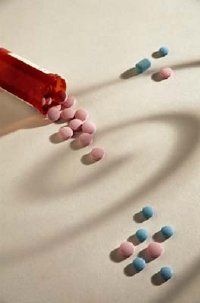To control your blood pressure, your body must adjust how much blood is pumped through your heart. Your body must also adjust the amount of pressure in your blood vessels.
How Your Brain Responds. When your blood pressure begins to fall too low, a signal is sent to your brain. Your brain responds by producing chemicals called neurotransmitters. Certain neurotransmitters, called catecholamines, cause your heart to beat faster and more forcefully and cause your blood vessels to tighten. These actions increase your blood pressure.
Advertisement
How Your Kidneys Respond. The change in the rate and force of your beating heart also causes a change in the amount of blood flowing through your kidneys. Your kidneys react to low blood pressure by producing a chemical called renin, which causes blood vessels to tighten. Renin is converted to a chemical called angiotensin II, which further tightens your blood vessels. In addition, neurotransmitters are thought to make the kidneys produce more renin, increasing blood pressure even more.
Your kidneys also regulate your blood pressure in another way. When there is not enough fluid in your body as in cases where you are dehydrated or have experienced very heavy bleeding, your kidneys will absorb salt, or sodium, and fluid from your urine. This causes an increase in the amount of fluid in your blood vessels and raises your blood pressure. This is how the body attempts to keep the blood pressure at a normal level. Your blood pressure has to be high enough for enough blood to reach all the organs. In contrast, when there is too much fluid in your body, your kidneys will flush sodium and excess water out of your body in the urine. This reduces the amount of fluid or blood plasma in your blood vessels and lowers your blood pressure.
Advertisement
